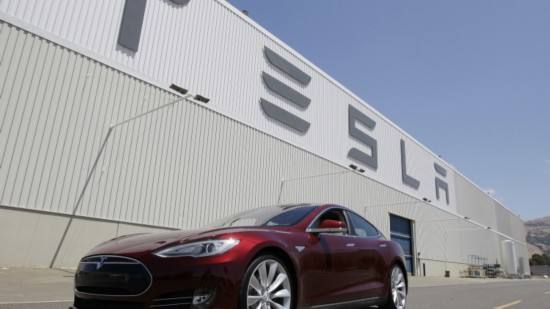President of SAE-China: Tesla may not set up wholly owned EV subsidiary

Shanghai (ZXZC)-On Oct. 24, Fu Yuwu, President of SAE-China delivered his opinion that Tesla is unlikely to set up a fully owned EV company in Shanghai free trade zone at APAC 19 & 2017 SAECCE, and he also added that Chinese government will relax the restriction for foreign automakers to have more equity in JVs.
Yesterday, according to Wall Street Journal, Shanghai government allows Tesla to build up wholly owned company to manufacture EV models. But Shanghai government officer responsible for NEV projects refuted that Tesla has signed an agreement with the government on establishing a fully owned company in its free trade zone. The topic that Tesla will set up a company in Shanghai has been widely spread since June this year. What concerns the public most is whether Tesla will establish a fully owned company or a JV company.
China has adhered to the 50-50 rule for Sino-foreign joint ventures for 23 years. The purpose for this policy is to make sure China's then-fledgling auto industry could benefit from technology transfer by JV companies with global car makers such as Volkswagen and GM.
Now, Chinese auto market becomes increasingly mature, the self-owned vehicle brands also grow more powerful, and Chinese government also vigorously boost the electrification of auto industry, therefore, China is likely to ease the threshold of 50-50 rule for Sino-foreign joint ventures in NEV sector.
Xu Shaoshi, Chairman of the National Development and Reform Commission, once disclosed at Davos's World Economic Forum in Tianjin in June 2016 that Chinese government was considering lifting the 50% ownership cap.
This April, China announced a mid-to-long-term plan for auto industry, saying that the government will improve the management regulations for domestic and overseas investment, and will open up the equity stake for auto JV companies in order.
Auto industry insiders believed that Tesla's reluctance of producing locally-produced vehicles mainly because Tesla doesn't want to lose its absolute control under the 50-50 rule for Sino-foreign joint ventures. Moreover, Tesla doesn't want to share its technologies with China's self-owned automakers. With the development of Chinese NEV market and the implementation of the dual-credit policy, it is possible for Chinese government to relax the equity stake of NEV JV companies, and allow Tesla to build its company in China.
The dual-credit policy is the most revolutionary policy lead by Chinese government in the history of Chinese auto industry, aiming to save energy and reduce emission. China hold strong determination to develop NEVs, and the restriction of equity stake for JV NEV is likely to be relaxed, said Fu Yuwu.

